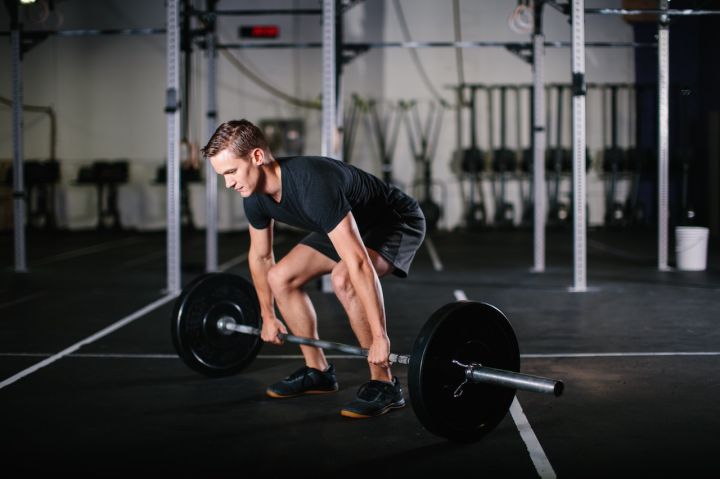As we all know, the deep squat is one of the three golden movements in the fitness movement, the role and benefits of the deep squat i will not say much today, who practice who knows. So, we do a good job on the basis of the traditional squatting action, can we increase the weight of the training, change the position, or try other variations of the action, so that it can burn off more calories fat, mobilize more muscle groups involved in the movement, to muscle strength and flexibility to present a further challenge, to stimulate more potential.

The deep squat is one of the most complex and practiced parts of bodybuilding, and it is also an event in powerlifting competitions. The deep squat not only improves lower limb muscles and strength, but also has a strong stimulus for the overall torso. In addition, regular practice of the deep squat has a significant effect on cardiorespiratory function and neurological regulation as well as a range of physiological responses such as hormone secretion. Therefore, for bodybuilders and regular fitness people, squatting is an essential exercise, and what we are going to say today is the three variations of the squat exercise.

Squat variation movement ①: Barbell push-up squat
It is called "Pushers", this whole body movement can not only exercise to the lower limb muscle groups, but also to train the upper back and shoulder muscle groups.
First, stand with your feet shoulder-width apart and hold the barbell with both hands. Raise the barbell to the same height as your shoulders, elbows forward, and do a deep squat. Until your thighs are parallel to the ground, exercise the strength of your legs muscles to push your body up from a deep squatting position; then push the barbell over your head with your arms fully extended and your biceps located on both sides of your ears, using the upward push of your legs to be able to generate the power needed for shoulder presses.

Squat variation 2: Goblet squat
This is a great exercise for beginners, the movement is simple and low difficulty, but at the same time effective movement. Hold one end of the dumbbell with both hands, feet hip-width apart, toes into the outer "Eight" Shape. The dumbbells are not only a good idea, but they are also a good idea. Remember to keep your knees and toes in one direction when squatting.
When practicing, holding the dumbbells at the same height as your chest helps keep your body straight so that your back doesn't lend itself to force.

Deep squat variation ③: Deep squat jump
In all deep squats, the exerciser needs to slow down at the top of the range of motion. This is so that the joints are not overstretched. However, for the deep squat jump, the exerciser needs to accelerate at the top of the range of motion to convert power into momentum. Stand with feet apart, spaced shoulder-width apart, and do a deep squat, then push the ground hard with your feet and do a jump. Raise your arms above your head and keep accelerating as you move upward, landing gently and making sure the entire sole of your foot is on the ground.
Remember that in the jumping exercise on the way, when the body falls must keep the toes and knees with the same orientation, the body does not fall too low when falling, so as not to cause damage to the knees.

Men often practice squatting, not only to make the muscles become strong, increase muscle density, improve muscle dimension, but also to strengthen the overall strength and bounce. Of course, in addition to the above three variations of movement, there are unarmed squats and sumo squats, different exercises corresponding to different roles. Remember to practice the number and standard of squats each time, to avoid the wrong action to the body to cause harm.
The above is the main content of today, thank you for your patience to read. Welcome to leave a comment, let us learn from each other and grow together.

